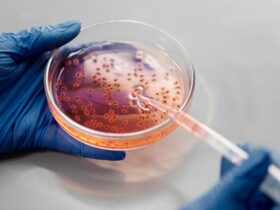There is a huge shift in the retail sector, and that is robotics in the spotlight. Increasingly, robots are being deployed to handle the customers as well as the stock for customer care and inventory management in the stores. In this, the future of the retail robot is addressed in depth through an overview of customer care and inventory management ...
Industrial automation is revolutionising manufacturing. By applying technology to automate factory and other industry operations, it enhances efficiency and reliability. This article explores the numerous benefits of industrial automation, examines real-world applications, and offers insights into the future of this rapidly evolving field. What is Industrial Automation? Industrial automation involves using control systems, such as computers and robots, to enable ...
Imagine robots in a factory warehouse lifting and lowering stuff with some sort of otherworldly accuracy. Imagine a car driving itself, zooming along city streets. All thanks to robotic vision systems, where robots can “see” and “look” around. This article delves into the lofty world of how robots see and react to their environment and technology, applications, and where the ...
Robotics is revolutionising all fields at a rapid rate, and medicine is no different. Rehabilitation therapy is one of the many fields where robots are making a huge impact. Robot-based rehabilitation therapy is revolutionising patients’ rehab after injury recovery, stroke patients, and other motion disorder patients. This paper provides an overview of the numerous applications of robotics in the field, ...
A robot with a flower in its fingers or gliding down a coiled thin pipe. This is soft robotics, one that renders robots obsolete for good. Metal and gears are no longer needed, but employing elastic, flexible materials that comprise soft robots, the possibilities are limitless. This article will delve into the wonderful world of soft robots, learning what they ...
Robots are rapidly transforming our world from fantasy to reality. For robots to truly integrate into our world, they must be capable of navigating it effectively. This article explores the fascinating field of robot locomotion mechanisms and how engineers are developing solutions to enable robots to move through complex environments. From drones delivering packages to mobile robots exploring distant planets, ...
The food processing industry is undergoing a significant transformation, with a clear trend towards increased automation in food processing and packaging. Automation technology is reshaping the processes involved in food production, packaging, and marketing, leading to improvements in efficiency, safety, and quality. From robotic arms auto-sorting and auto-packing fruits and vegetables to automated sealer and filler machines, automation is rapidly ...
Robotics is revolutionising industries at a geometric pace, and the manufacturing industry is taking the lead. The extensive application of robots in factories has generated controversy on whether robotics would be future factory labour or not. While others believe that numerous jobs would be lost, others are of the opinion worldwide that robotics creates new opportunities and increased production overall. ...
Mining, the industry that provides the supply of raw material powering today’s world, is being transformed by robot technology. The application of robot technology employed in the mines is not hypothetical but a real facility rendered in the way of efficiency, safety, and sustainability. The application of robots to mining is becoming more prevalent and is hence elaborated below with ...
Humanoid robots, or humanoids, have fascinated us for centuries. From science fiction to covert research facilities, humanoid robots represent an interesting cross between technology, artificial intelligence, and the prospect of humanity. This article peels back the layers of design and vast fields of application for humanoid robots to reveal their possibility and the implications of their being. What are humanoid ...


































